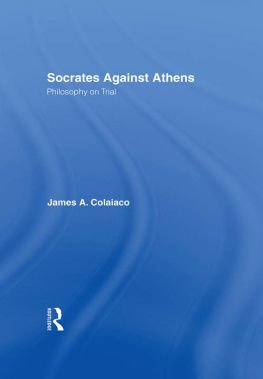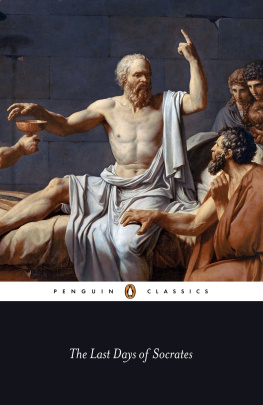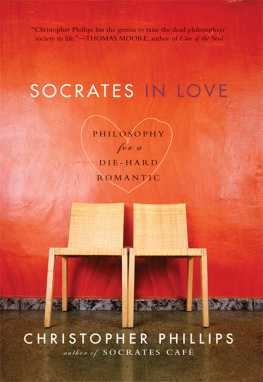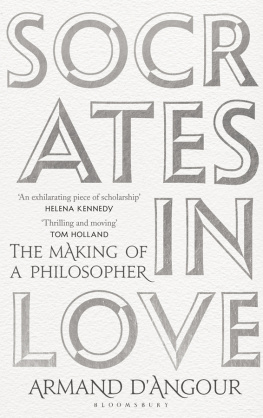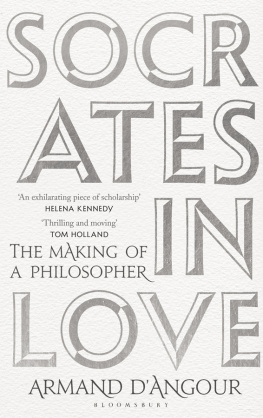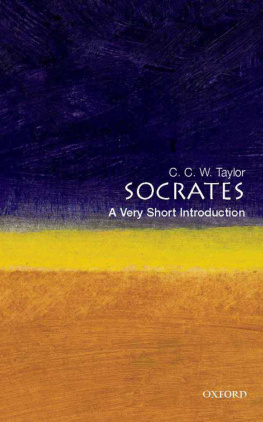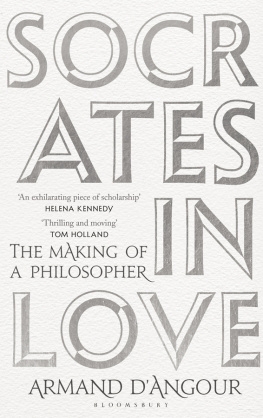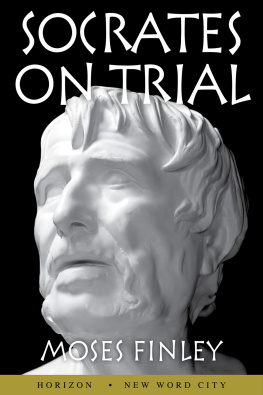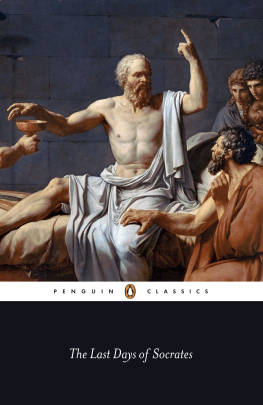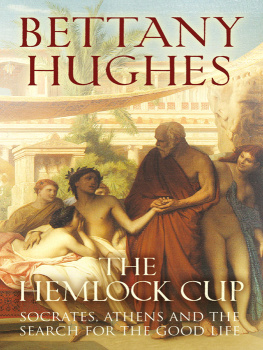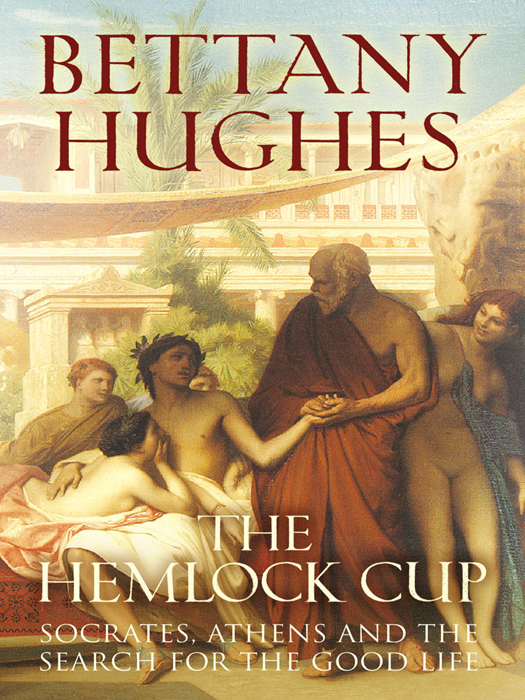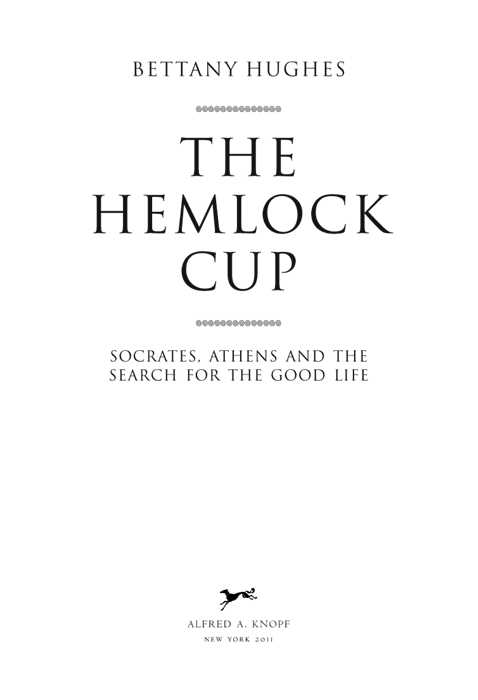ALSO BY BETTANY HUGHES
Helen of Troy: Goddess, Princess, Whore
THIS IS A BORZOI BOOK
PUBLISHED BY ALFRED A. KNOPF
Copyright 2010 by Bettany Hughes
All rights reserved. Published in the United States by Alfred A. Knopf,
a division of Random House, Inc.
www.aaknopf.com
Originally published in Great Britain in 2010 by Jonathan Cape,
an imprint of the Random House Group Limited, London.
Knopf, Borzoi Books, and the colophon are registered trademarks of Random House, Inc.
Library of Congress Cataloging-in-Publication Data
Hughes, Bettany.
The hemlock cup : Socrates, Athens and the search for the good life /
by Bettany Hughes.1st U.S. ed.
p. cm.
eISBN: 978-0-307-59529-4
1. Socrates. 2. PhilosophersGreeceAthensBiography. 3. Philosophers, AncientBiography. 4. Athens (Greece)Biography. I. Title.
B316.H84 2011
183.2dc22
[ B ] 2010045486
Jacket image: Socrates, engraving by Thomas Trotter after a drawing
by Peter Paul Rubens. Mary Evans Picture Library.
Jacket design by Jason Booher
v3.1
For
KE-SE-NE-WI-JA
xenwia and xenia
and therefore for my
friends, at home and abroad.
CONTENTS

Many wonders, many terrors, but none more wonderful or more terrible than a human being.
Sophocles, Antigone, 332
And what kind of person is more loved by the gods than the one who is most happy?
Xenophon, describing Socrates in his Memorabilia, 4.8.3
ACKNOWLEDGEMENTS

I have referenced the works, both ancient and modern, upon which I have relied heavily or which might be of further interest to the reader. Although I would have loved Socrates to be Sokrates and hence more Hellenic, I have in general chosen the more familiar, Latinised versions of the names of literary and historical figures and places.
The translations are my own or a collaborative effort between myself and my colleagues unless otherwise stated.
For help, humour, hospitality and the gift of nous my heartfelt thanks go to:
Julian Alexander, Anna Antoniou, Professor Mary Beard, Professor Lisa Bendall, Professor Sue Blundell, Richard Bradley, Professor John Camp, Professor Paul Cartledge, Sophia and Alex Constantidis, Professor Michael Cosmopoulos, Professor James Davidson, Dr Angelos Delivorrias, Professor Matthew Dickie, Dr Matt Edge, Kathy Elgin, Lucy Felmingham, Spiro and Millie Flamburiari (thank you for introducing me to the delights of Corcyra), Wing Commander John Foden (who, age 83, led me through the mountains of the Peloponnese), Dr Annelise Freisenbruch, Professor Betsy Gebhard, Dr Dimitris Grigoropoulos, Dr Angie Hobbs, Dr Dan Hogg, Ben Jackson, John, Jenny, Jane and Julia (for the houses), Professor Robin Lane-Fox, Bill Locke, Jack Maclnnes, Peter Millett, John Morcom, Dr Alfonso Moreno, Professor Dirk Obbink, Justin Pollard, Jennifer Redfearn, Professor P. J. Rhodes, Laura Rizzotto, Sophia Roberts, Professor Charlotte Rouech, Dr Deborah Ruscillo, John Savage, Dr Michael Scott, Philip Sellars, Dr Victoria Solomonidis, Julietta Steinhauer, Dr Claire Stocks, Professor Barry Strauss, Professor Oliver Taplin, Lieutenant-Commander Alec Tilley, Dr Nicola Wardle, Olivia Williams. The staff of the Ashmolean and British Museums, the German Archaeological Institute, the Naples Museum and the Samos Epigraphical Museum, thank you for your patience. St. Hildas College my alma mater always there for me. Professor Dirk Obbink the treasures from the sands of Egypt have been patiently and generously revealed. Robin you fired me to do all of this, when we meet or talk or I read a word of your work I remember why every single one of your tutorials was wildly inspirational. Never a dull moment. Matti and Nicholas Egon have been, as ever, wonderful. The world owes you much. Professor John Camp, your guided tours were exceptionally helpful, and illuminating for both me and my girls. Peter and Anna, youve let me impose on your hospitality so many times now, and Athens will not be the same without you. Pete, our road trips have been amongst the happiest days of my life. Sorrel and May Evans thank you very much for reading out those Plato quotes at times of need. Adrian, thank you for living with a backview at a computer for the last five years. Ma and Pa, you made it possible.
Without the undinting support of all of the above this book simply would not have made it into print.
Ellah Allfrey and Dan Franklin sympathetically honed the text and saved me from both extreme colloquialism and self-indulgence, Tom Avery the man with the most beautiful writing in the world, was charm personified despite my increasingly wild demands. Neil thank you for the extension, Will for your good judgement, and Clara for your vivacity and vision. Julian Alexander, my literary agent, has been my rock and has become one of my dear friends, you have made my life better and whenever I think of you I smile. Dr Alfonso Moreno, Dr Angie Hobbs, Professor Oliver Taplin, Professor Michael Cosmopoulos, Professor James Davidson, Professor Elizabeth Gebhard, Professor Matthew Dickie, Peter Millett, Dr Matt Edge have all been kind enough to read all or part of this text and save me from error and mania. Paul Cartledge has proved himself, once again, to be both the superior friend and scholar. He has met last-minute requests to look over this text I blush to think how many times with grace and generosity. He is one of the reasons I love antiquity with such a passion.
PREFACE

Those who are already wise no longer love wisdom whether they are gods or men.
Similarly, those whose own ignorance has made them bad, rotten, evil, do not strive for wisdom either. For no evil or ignorant person ever strives for wisdom.
What remains are those who suffer from ignorance, but still retain some sense and understanding. They are conscious of knowing what they dont know.
Socrates, in Platos Lysis, 218b, fourth century BC
P UT TWO AUTHORS TOGETHER IN A room and someone is bound to leave mildly depressed. The only exception seems to be when one of the pair is Peter Cook. Meeting a fellow writer in a bar, so the anecdote goes, he was asked whether he was penning a book. Yes, Im not either came the soothing reply.
No such comfort for me. Sharing breakfast in an Edinburgh hotel with an award-winning novelist, just as I embarked on this book, the friendly chat came round to our next projects.
Socrates! What a doughnut subject! he exclaimed. Gloriously rich, with a whacking hole in the middle where the central character should be My smile fixed. Of course he is right: because as far as we know, Socrates wrote down not one word of philosophy. The idea of Socrates is immensely influential, and yet everything we know of him is hearsay. He is, historically, conspicuous by his absence. And thus for the past five years, as Ive typed, I have had a spectral doughnut hovering over my shoulder.



